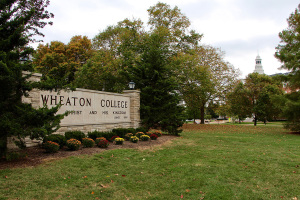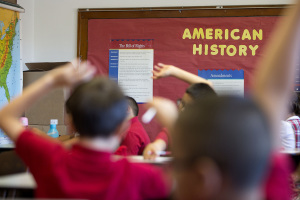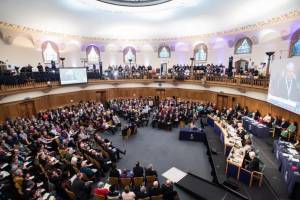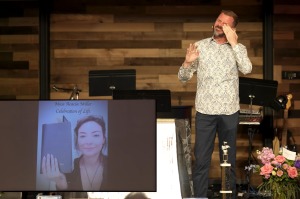First Latino President of United Methodist Seminary Sees Justice
''We agreed to say the issue of injustice has been addressed. We're both satisfied with it and look forward to a relationship that will be mutually respectful''
A United Methodist (UM) seminary and its former president reached an agreement on April 19, settling injustice issues that developed surrounding the denomination’s first Latino seminary president.
The Rev. David Maldonado assumed presidency at Iliff School of Theology, one of 13 UM affiliated institutions, in June 2000, and abruptly retired May 26 of last year. According to the UM press release, Maldonado felt pressured to leave by faculty leadership and some trustees due to “culturally different” views. However, the joint declaration issued last week pleased both parties.
"We agreed to say the issue of injustice has been addressed. We're both satisfied with it and look forward to a relationship that will be mutually respectful," said Maldonado.
Maldonado and Interim Iliff President the Rev. J. Philip Wogaman recently met with a mediator in Methodist headquarters in Nashville, Tenn., to resolve the justice issues.
"I am very pleased we have been able to work out this agreement," said Wogaman. "I think this will help Iliff School of Theology and President Emeritus Maldonado move ahead from this point."
The declaration states Maldonado as president emeritus and special adviser to the president over the next year and the school will "honor his legacy" through a scholarship fund established in the name of Maldonado and his wife, Charlotte.
"Iliff looks forward to a day of reconciliation and celebration and to years of future relationship in which Dr. Maldonado, as president emeritus, will be enabled to offer counsel directed toward the well-being of this venerable institution," the declaration states.
The investigative team from the denomination’s University Senate and the United Methodist Commission on Religion and Race issued a public warning to the school last November after finding “patterns of institutional governance and perceived racial and cultural insensitivities.”
The team issued the warning after determining that "institutional racism was a major, significant factor" leading to Maldonado’s departure.
Maldonado said the faculty resisted his leadership, and that some faculty accused him of being too theologically conservative or moderate. They told him he did "not fit" or was "culturally different," he said.
"Today justice for Dr. Maldonado has been resolved," said Fidel "Butch" Montoya, a former Denver director of public safety and a Maldonado supporter. Indeed his successful achievements are finally being recognized. We applaud the settlement of this most important issue."
Montoya said "while we are pleased this one issue has been resolved, we have made it clear to the president of the board of trustees to Interim President Wogaman that there are still outstanding issues that must be addressed as well."
MARCHA, an unofficial church caucus—its full name, translated from Spanish, means Methodists Associated Representing the Cause of Hispanic Americans—had called on Iliff to reinstate Maldonado as president and to issue a public apology to him and the Hispanic/Latino community.
The caucus also advocated for the "well-being of other racial ethnic minorities working or studying at Iliff, and for the quality of theological education in the United Methodist Church." It cited findings of intimidation against Maldonado’s supporters.
"I am quite glad that the board of directors of Iliff finally realized that doing justice was and is the best way, and the only way if an individual or an institution wants to show a serious commitment to the gospel of Jesus Christ," said the Rev. German Acevedo, a leader of MARCHA. "I still want to find out how Iliff is going to address other manifestations of institutional racism."
The Religion and Race review team will visit Iliff April 26-28.





























